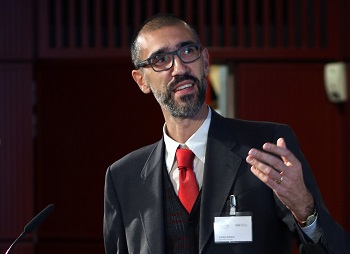A new director has been designated for the School of International Studies of the University of Trento. The Academic Senate has appointed Stefano Schiavo for the remaining part of the 2020-2023 term from January 2021, when the resignation of Andrea Fracasso, for personal reasons, will take effect.
 Professor of economic policy at the School of International Studies and at the Department of Economics and Management of the University of Trento, Stefano Schiavo is also chercheur affilié at the Department for Research on innovation and competition of the Observatoire Français des Conjonctures Économiques, where he worked as an economist between 2006 and 2008.
Professor of economic policy at the School of International Studies and at the Department of Economics and Management of the University of Trento, Stefano Schiavo is also chercheur affilié at the Department for Research on innovation and competition of the Observatoire Français des Conjonctures Économiques, where he worked as an economist between 2006 and 2008.
Stefano Schiavo, 43, earned his PhD in Economics and Management at Scuola Superiore Sant'Anna di Pisa, and graduated in Political economics at the University of Trento.
His research interests lie in the field of international trade, firm behaviour in international markets, network analysis. His scientific publications, which have appeared in many international journals, include papers on innovation in trade, food safety, the role of financial constraints in determining firm behaviour.
As the new director, Stefano Schiavo will welcome to Trento the activities of the Erasmus Mundus Master's programme in Security, Intelligence and Strategic Studies (Imsiss), jointly offered by UniTrento with the University of Glasgow (UK), Dublin City University (Ireland), and Charles University in Prague (Czech Republic). Students on this master’s degree programme will examine a broad range of contemporary security challenges, such as terrorism, civil war and conflict, mass migration, energy supply security, cybersecurity, and new technologies, and transnational and serious organised crime. Students will also explore the intelligence and strategic approaches used by governmental and non-governmental actors to combat these threats.


